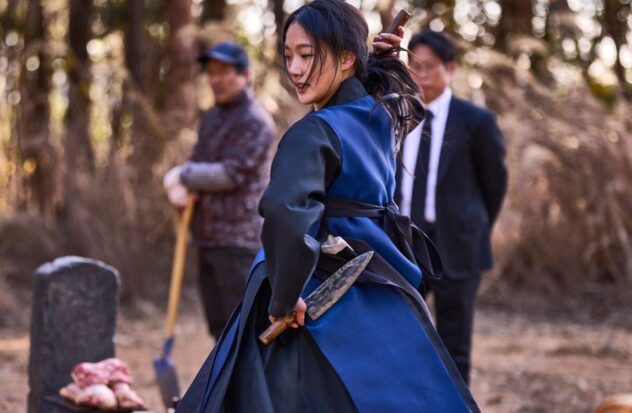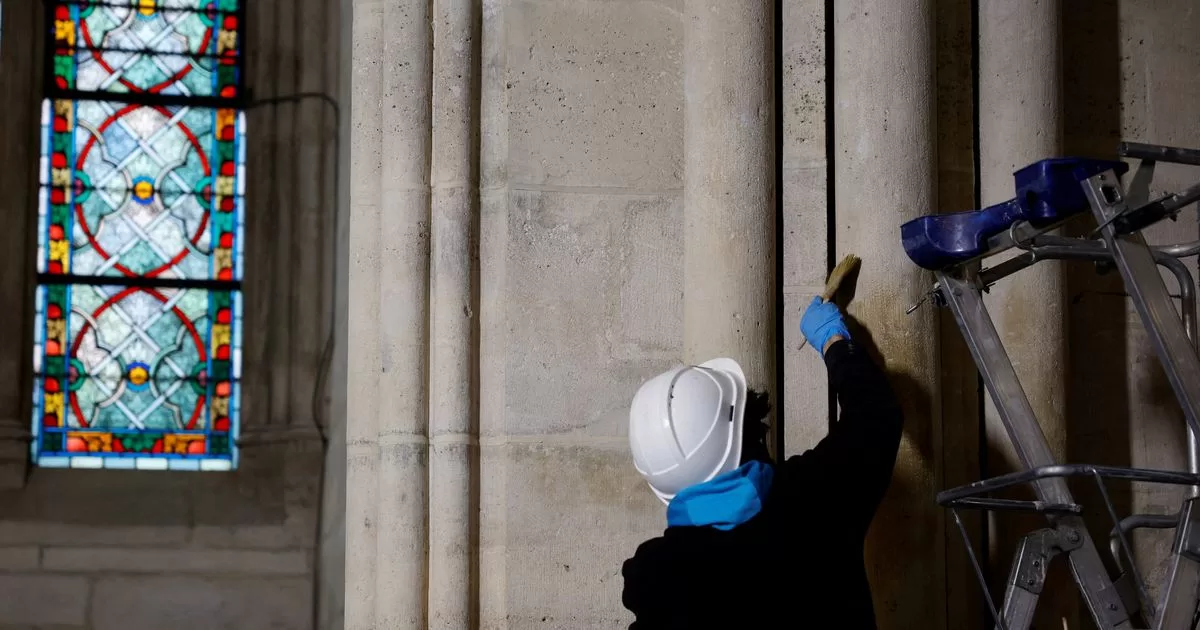For him man In the modern sense, the word shaman automatically conjures up a strange and primitive figure who survives in some tribes far from civilization. Anyone who is not familiar with the culture of the place will see him as a kind of healer who moves on the borders of psychosis and mysticism. Scholars of the Tradition such as Mircea Eliade or Ren Gunon make clear the central role that this profession has in a collective: the shaman can move easily between the two worlds we inhabit, the physical and the subtle, and unlike everyone else, he is the only one who does not see both planes as split. His role is comparable to that of a psychoanalyst who can detect the common points between a complex that operates in the psyche and its manifestation in a certain pattern of behavior or in somatization. Paraphrasing Carl Gustav Jung, we have transformed the gods into psychic powers in order to work with their images, while the shaman continues to see these ethereal forces in their purest state and can therefore easily operate as a connector between worlds. A task that seems distant in time and limited to primitive societies is still useful, respected and practiced in modern times in highly advanced countries in Asia. This is the central point of Exhuma, the new psychological and paranormal thriller that comes to Shudder after its world premiere at the Berlin Film Festival.
The story introduces us to Hwa-rim (Kim Go-eun), a famous shaman who works with her talented assistant Bong-gil (Lee Do-hyun). Both are hired in Los Angeles by a wealthy family of Korean origin because all the males of their lineage suffer from a strange disease. Immediately, the shamans realize that the disease that afflicts their clients is inflicted by a soul in pain of some ancestor who needs to have a proper burial. In order to solve this case, Hwa-rim and Bong-gil contact Sang-duk (Choi Min-sik), the best geomancer in Korea, and Young-geun (Yoo Hai-jin), a talented forensic scientist, to help them exhume the grave with the remains of the ominous ancestor who torments his descendants. As eccentric as it may sound, this is a common job for them and thanks to the juicy financial reward they will receive, they decide to get to work. Things get complicated when they find the tomb they must exhume in an abandoned mountain and everyone senses that there is an evil presence trapped in it. Despite this, the team reluctantly decides to continue the process, unintentionally freeing a powerful dark force that they will have to face.
Directed and written by , Exhuma has a premise that may sound all too familiar – someone opens a grave from which an evil entity escapes and begins to claim lives – but this film is unlike anything we’ve seen before. Its differentiating element is removing the focus from the victims and putting it on the shamans. In this way, the plot is sustained thanks to the curiosity generated in the viewer to see a select group of professionals as if it were a medical or legal drama using all their tools to face the greatest work challenge they have had so far. Thanks to this, it shows us, in great detail, how each character lives their trade and the logic behind everything they do during an exhumation process, a protection and exorcism ritual, a mediumistic dynamic and many other practices (in places as diverse as a cemetery, a temple, a morgue or a hospital). Of course, we have the occasional jump scare or scenes where we observe the ghost that haunts us through reflections, but what really keeps us in suspense are the processes that the protagonists carry out (such as the work of the geomancer with the 5 elements or that of the shamans with chants, symbols, horse blood, rice, etc.).
Inspired by an experience from his childhood when he observed an exhumation process in which science and the supernatural worked in harmony, the script for Exhuma not only deals with the paranormal, but also explores different aspects of its protagonists linked to their past, fears, personal experiences and the idiosyncrasy of the country in which they live. In fact, just as the shaman connects the micro with the macro, the script of the story begins with an isolated case of a family and ends up escalating to a conflict that affects an entire nation. This gives the script a certain permeability where the supernatural element merges with the history of the country, its culture, urban legends and tradition to give us an experience that feels terrifyingly real. Although we may not fully understand what the shamans do on screen, at no point do we doubt its veracity and that, outside of the film, this is how they operate today (which is confirmed by the exhaustive research work carried out by the scriptwriter and actors to prepare their characters).
The direction is immersive and maintains the plausibility of the narrative universe that it builds at all times. Even the most skeptical person who sees Exhuma will not be able to avoid feeling uneasy in some of its scenes. In addition, by having several main characters with different jobs, the director can jump from one to another to change the tone of the story, going from the coroner who operates as a sort of comic relief, jumping to the geomancer’s job that gives a police thriller touch to the film, to going fully with the shaman and her medium assistant in the most paranormal and tense sequences of the story. At the same time, the director always maintains the balance in the participation of each of the characters in the processes that are carried out: the geomancer analyzes the place with Feng Shui, the coroner carefully takes care of the exhumation of the corpse, the shamans perform the rituals to appease the spirits – each one is indispensable and their work is fascinating. In fact, the director participated in more than 10 burials and did meticulous research into all the practices of geomancers, forensic scientists, shamans and mediums to take care of every detail and maintain at all times the plausibility of what happens in front of the camera (which is why the vast majority of the special effects are practical and the use of CGI is almost non-existent).
In the acting section, the cast is luxurious. Choi Min-sik, One of the most famous actors of his generation, who many will remember from Old Boy or I Saw the Devil, shines like never before in his role as a geomancer. Despite this being his first time making a supernatural film, his attitude at all times is so calm that he speaks about his job with the same confidence and knowledge as an accountant. Hai-jin, despite having the most histrionic role of the group, performs the most solemn job by being in charge of the exhumation of the body as a coroner (which doesn’t prevent him from moving easily between a carefree and funny attitude and that of a scientist). Lee Do-hyun, despite being the character with the least dialogue in the story, has a special gravitas that stands out thanks to his deep gaze and enigmatic tattoos and is the one with the most violent dramatic arc. Thanks to her mediumistic ability, she goes through a series of channelings where her voice changes, she twists, acts strangely and also has to deal with all kinds of practical effects such as spitting blood, having physical injuries, etc. Finally, the big surprise is Kim Go-eun who, despite her youth, is the one with the greatest strength in the cast as the shaman. Like her partner, her presence is imposing and at all times she feels in control of what she does. Just for the sequence where she dances, sings, cuts herself and twists to appease the spirits, the film pays for itself.
Exhuma is much more than a film about possessions or superstition, it is a fascinating story that serves as a testimony to many practices that are still preserved today around death in Asia. Its characters embody how science and the supernatural can coexist and support each other in a society where the double vision of the subtle and the tangible still persists in the collective. Through a family conflict, the story zooms out to explore the ghosts of the past that continue to haunt a nation and try to dialogue with them. With its hypnotic sequences of exorcisms and its universe full of popular beliefs, Exhuma lifts the veil of modernity and invites us to ask ourselves questions about that which we do not see or understand but which continues to coexist among us. Whether we call it the collective unconscious, the morphic resonance field or the world of the subtle, the film confronts us with that other thing that generates terror in us and that we must face in order to exorcise the demons that continue to haunt us personally and collectively.
The best: the tension that it handles from beginning to end. The luxurious performances. All the rituals that are carried out both for the staging and for the rhythm they have and what they teach us about Korean culture. Its reflection on family and collective lineage.
The bad: The trailer sells it as more of a horror film than a thriller, which may disappoint those expecting jump scares. You need to have some background on Japanese and Korean history to understand several key plot points.
About the Author:
Luis Bond is a director, screenwriter, editor and teacher. Since 2010 he has been a film critic for the web, radio and print publications. He is a Tomatometer-approved critic at ( ). His training in film has been complemented with studies in Deep Analytics and Sa. He is co-host of the podcast Axis Mundi where he delves into film analysis, literature, psychology and symbolic language.
Twitter (X), Instagram, Threads, TikTok: @luisbond009
Web: www.luisbond.com
FUENTE: LOUIS BOND




